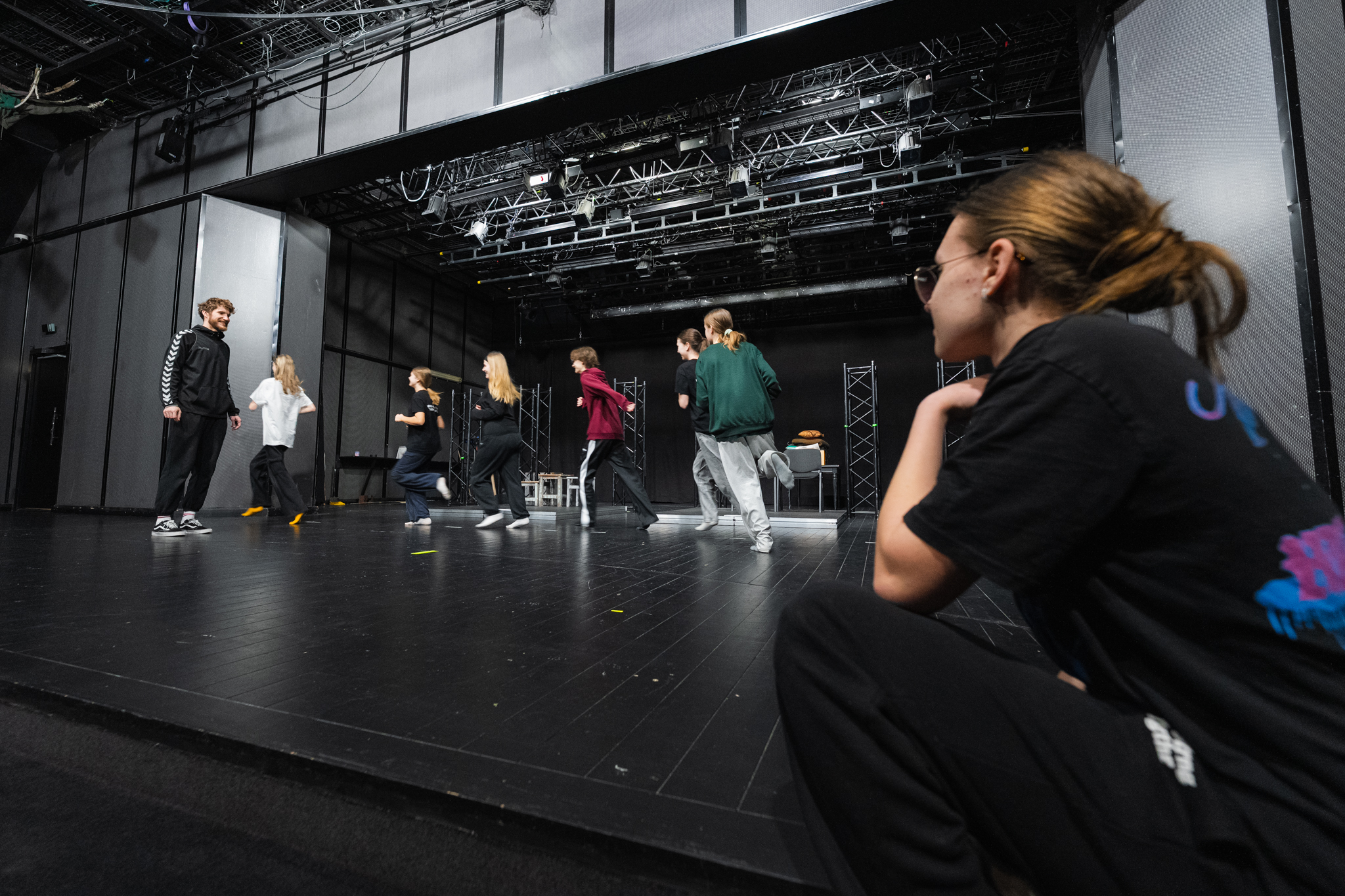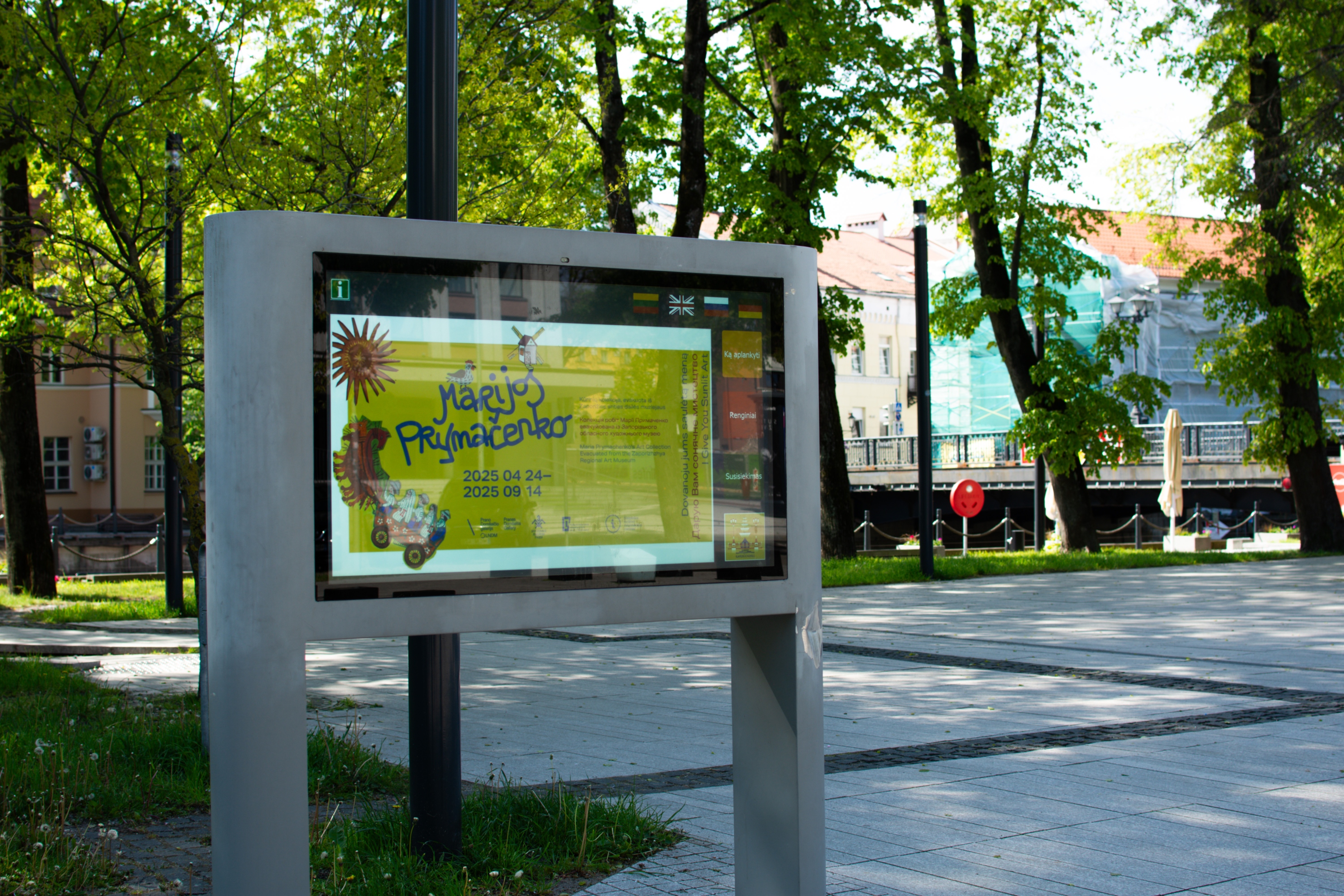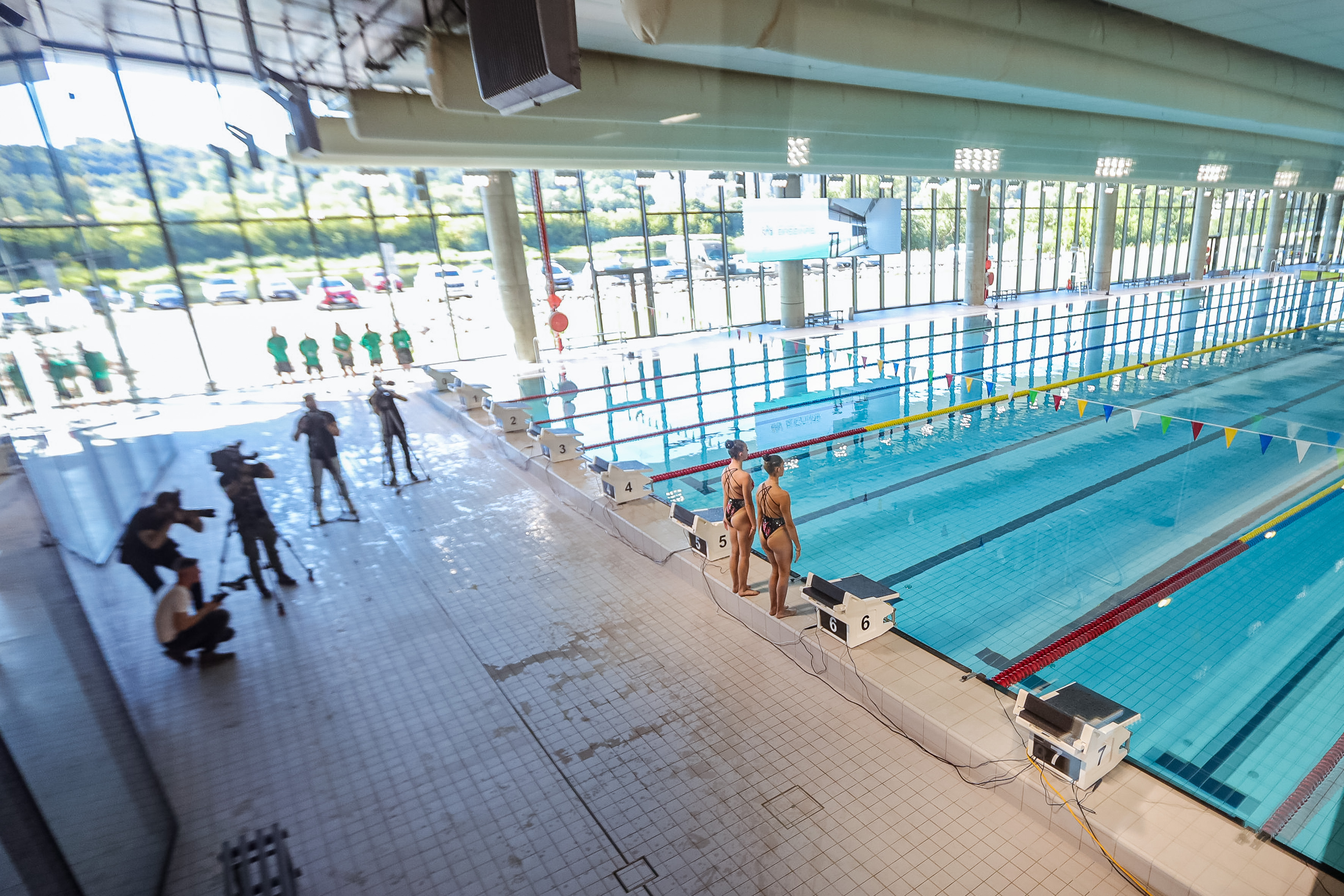For children’s premiere and debut of actresses learning teenagers

For several years now, the Klaipėda Drama Theater has been operating a Children’s Theater Studio – which has grown from one group of elementary school students, and is currently covering two large children’s age groups under the care of four actors in this theater. Kamilė Andriuškaitė and Karolina Kontenytė are familiar with the youngest members of the studio with theater, and the elders Karolis Maiskis and Samanta Pinaitytė. Theater workers are affectionately referred to as « theater », children and adolescents not only learn the subtleties of various actresses, but also know the theater itself – the various professions of people, theater spaces and processes. Sometimes they themselves are involved.
“What do you say?” In the case, senior students of the studio will appear on the stage, and their age also corresponds to the age of the characters in the history of the performance. The idea of using teenagers, creators came naturally – the viewers wanted to identify with the performance of the performance more easily. Honestly, only adults will talk about the concerns of children who are in adolescence.
The protagonist of the new performance is a teenager Ema, and she seems to be becoming more and more difficult to interact with family members and others, so once, disappointment and annoyance, no one understands her again, she wants to misunderstand others. That’s what happens. When she wakes up in the morning, she finds homemade strange in a strange language, and « Bird’s Language » is marketed by people in the city, even classmates at school.
S. Pinaitytė acknowledged that the teenager is a considerable task.
« Age is the biggest challenge for me, I play with students from the theater studio, they are almost 15 years older than me, and we have to look like annuals on stage. So during rehearsals, I try to copy them as much as possible: body language, gesticulation, speaking manners, even some words and expressions, » the actress said.
But working with her students is a great pleasure, « they bring a lot of life during rehearsals. They are very curious, constantly asking, interested. They always come ready, repeated. It is very inspired. I understand that I am an example to them on stage.
According to her, the students of the studio will bring a lot of play and vitality to the performance, as they perfectly convey children’s lives and hobbies. With its unique character traits, the world of performance is complemented. The young participants of the performance are also the only ones who do not specifically choose the sound of a foreign language – each « Bird’s language » improvises according to themselves.
Photo by D. Rimeika
“What do you say?” A whole bunch of pupils of the Children’s Theater Studio will appear, and before the rehearsal, four of them – the true veterans of the studio, were interviewed. Dila (14), Ruth (14), Luka (13) and Pius (15), have been a long time ago.
« I started the theater circle for the first time while I was still living in Ireland, I was only four, but I really liked it and then started dreaming of actresses. When I returned to Lithuania, I wanted to continue the theater classes, and I needed to improve my Lithuanian language skills, so I found myself in theater studio.
Ruth and Luka came to her, and she also came to the theater studio after returning from abroad.
« I was very timid, so my mom wanted to help me – that’s how theater came into my life, » Ruth said.
Luka, in turn, attended theater and dance while still living abroad, dreamed of actresses early, « Ruth suggested to this study, I do not remember the very beginning, but I really like it here. »
The chief of the young actors, Pius, remembered his start in the theater with a smile: « My mother offered to attend theater, said I was the kind of person to whom it would be, and I constantly raised all kinds of dramas.
Asked to evaluate their time in the theater and what it took from it, teenagers shared an extremely intravenous observation.
« For all I can say that we learned to speak louder. We became bolder. We were no longer afraid of the stage. For the first time, we rushed to play our performances for the first time, such as an hour, at the premiere that they would fit in half, » Dela said.
The speaking louder interlocutors emphasized, and it covers them not only the volume of speaking itself, but also self -expression in general.
We learned to discover and use our voice.
« We learned to discover and use our voice, » Ruth summarized.
Invite to participate “What do you say?” In the creative process, the studio students reacted enthusiastically, and the opportunity to work on stage with professional actors on the stage is also expensive for them.
« When we work on stage together, I feel more professional. I also see how hard and a lot of actors work, » Luka said.
According to Deila, she imagined the creative process of the performance as very strict, « I thought that you would not be laughed at the spot – it’s finished, you were changing another. Carol kept scaring us, but now we see how much improvisation in that process and how interesting it was. »
Pius acknowledged that he, although he was repeatedly found in theater spaces, seemed serious and strict from the side, they were quite different in rehearsals, « we feel more comfortable working with professionals, we know that if something happens, they will know how to behave.
Adolescents were also the first evaluators of the upcoming performance of the theme of the future performance and the selected form of fulfillment. In their opinion, what is « what do you say? » – It is very relevant.
« Many of our peers feel unheard, so this is a really important topic, I think it is useful to pay attention to the importance of listening and hear each other, » said Pius.
He was also supported by other speaking teenagers, according to them, using glosolalia, a patchwork of pointless sounds reminiscent of binding language, and very precisely how they sometimes feel and other peers.
K. Maisky’s performance « What do you say? » Premiere at Klaipėda Drama Theater on April 26 and 27.
On April 26 and May 10, the performance will be shown with translation into sign language.






